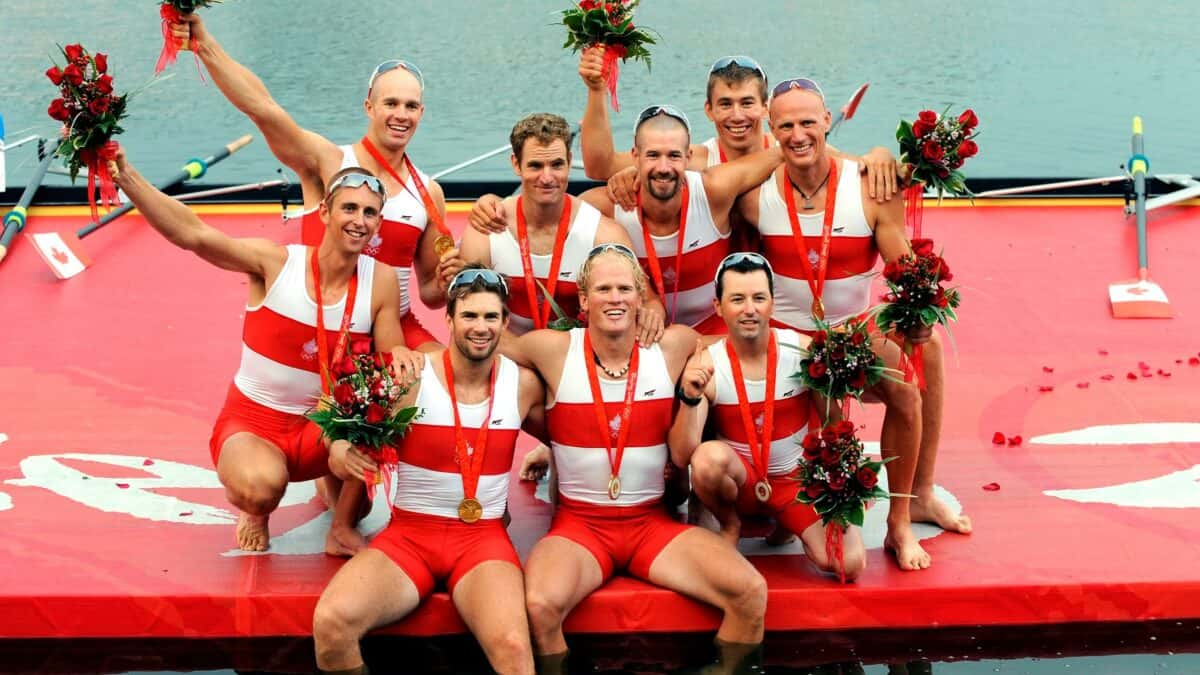
27 Jan 2020
What happened to…. Adam Kreek
In the years since, Kreek has made a career for himself in public speaking and business coaching. Most recently he turned his powers of communication to print with a new book: The Responsibility Ethic.
In this edition of our “What happened to…” series, World Rowing speaks with Kreek about his transition from elite sport into everyday life as business coach and author.
As a teenager in London, Ontario, Kreek had no idea where joining his high school rowing team would lead. “They started up a rowing programme when I was in grade 11,” Kreek recalls. “Since I’d tried the sport before at a camp, I thought ‘why not?’”
“I wasn’t one of those kids who started rowing and said ‘I want to be an Olympian’,” In fact, I was kind of naïve. My coach took me aside after a year and said, ‘you are an Olympian and you just don’t know it yet’. Despite that, he never expected too much and encouraged me to be a multisport athlete.”
A highlight of Kreek’s rowing career came in 2002 as part of Canada’s first ever men’s eight to win at the World Rowing Championships. A string of wins ended, however, in disappointment. At the Athens 2004 Olympics Kreek’s crew were unable to capture gold. Four years later it was a different story and Kreek’s famous rendition of his national anthem is now part of Canadian sporting history.
In his current role as an executive business coach, Kreek provides support to leaders in fields from finance to aerospace. “I find it fascinating,” he says of his role where he can pull from his own experience to have a meaningful impact on others.
“It is nice to have someone who can help support you and help navigate the nasty politics of the corporate world.”
Kreek sees a parallel to the world of elite rowing where the support of a good coach is essential. In fact, he credits the expert help of a coach for his successful passage through the often-difficult transition from elite athlete to the working world.
“After Olympic gold, you have a high that you ride,” remembers Kreek. “Banquets and hall of fame inductions keep the energy alive and it is nice, but on the other side is the feeling of being violated by the experience. I felt violated by my victory. Here I was being told that I was great, but my next ventures were not moving as quickly as I wanted. I was feeling frustrated, depressed, stuck.”
It took many months, but Kreek hired an executive coach and things began to turn around. “He helped me acquire the skills I needed to become an entrepreneur. My philosophy was to replicate the things that had made me successful in sport to help me be successful in business life. I had a coach in sport and even now in business I still have a coach.”
He is quick to point to the ever-present support of his family as well. “My wife Rebecca has been one of the biggest supports over the entire journey,” Kreek says. “I wouldn’t have done any of it without her.”
The desire to translate his own struggles and successes into practical advice for others has culminated in a book. The Responsibility Ethic that touches on his own story and offers guidance for leaders.
When it comes to transitioning into life beyond elite rowing, Kreek’s advice for the next generation of rowers is to start now.
“There are two deeply emotional parts to an athlete’s journey,” he explains. “The first is when you dedicate yourself to the path of high performance; the second is when you definitively say good bye. You don’t have to obsess about it, just start thinking about what you want to do after sport.”

